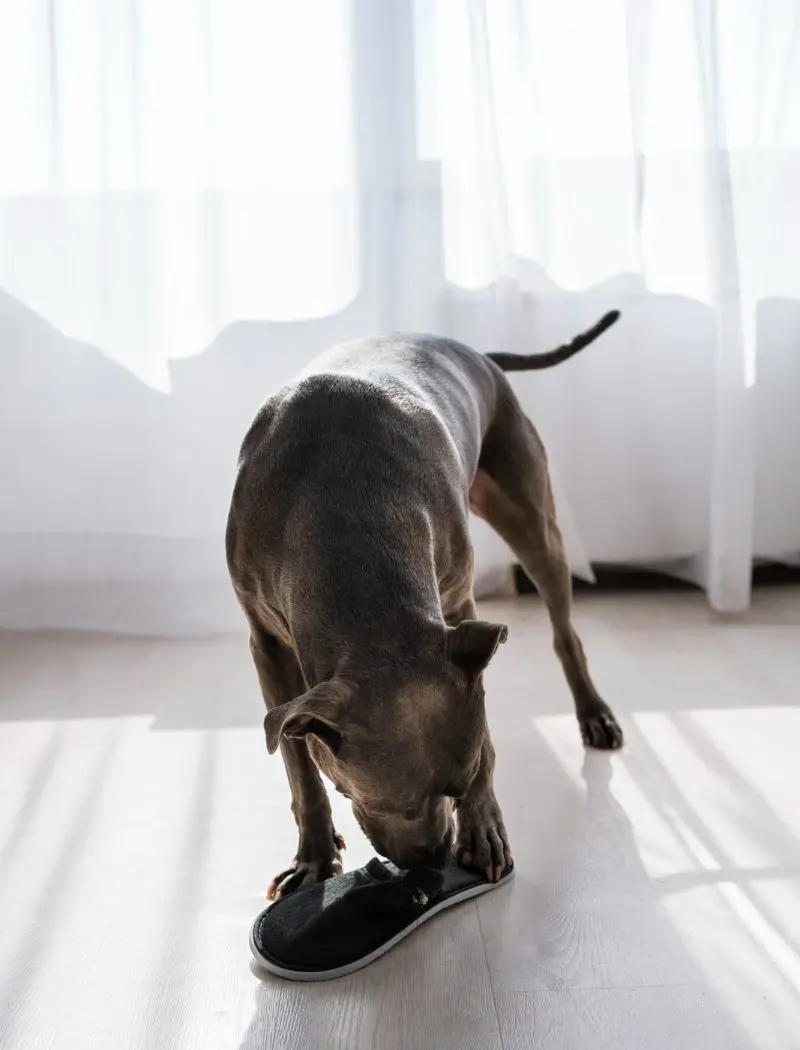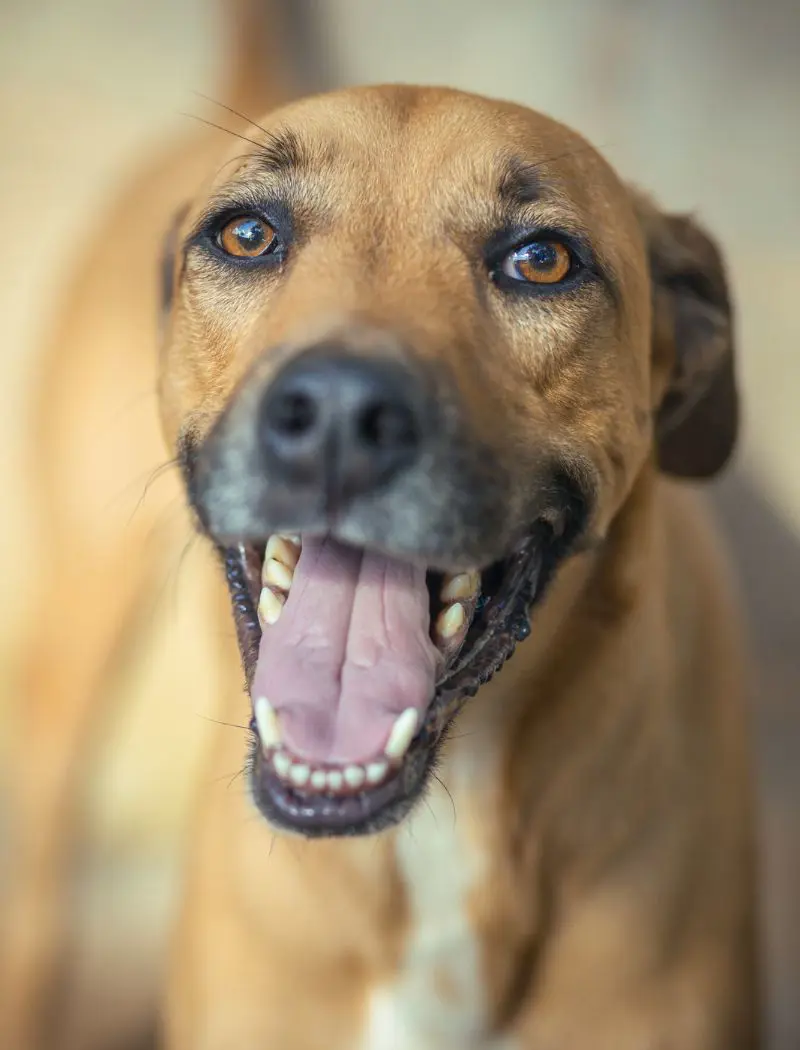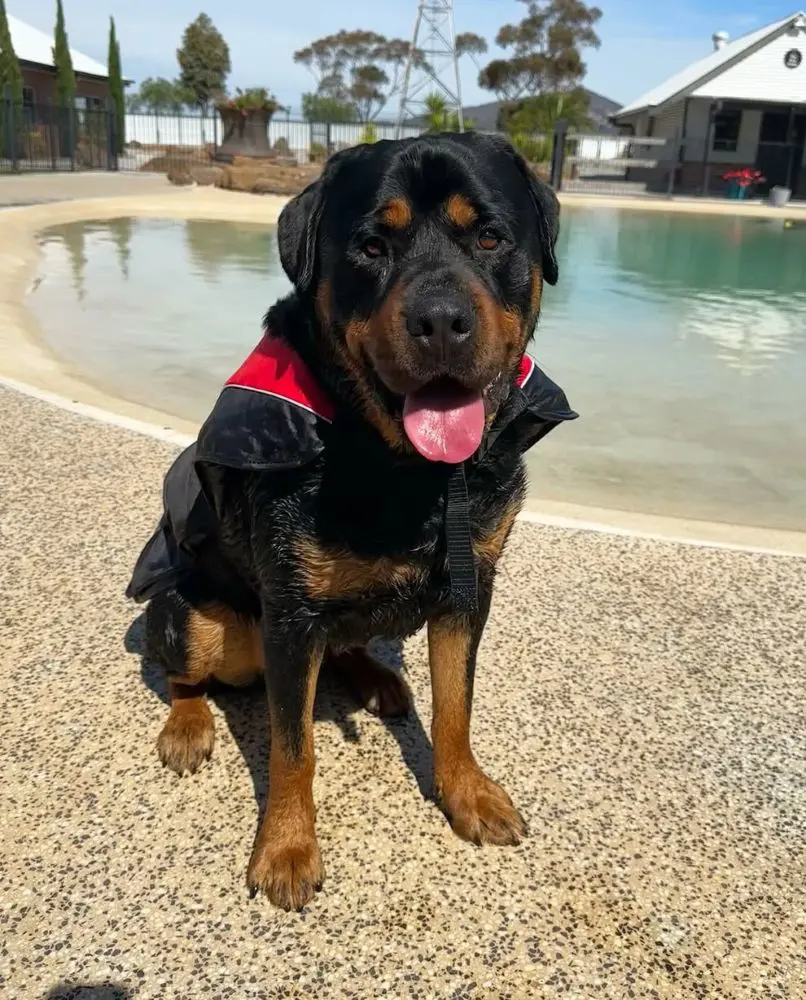18 Reasons Your Dog Has Runny Nose

A runny nose in dogs can be caused due to mild inflammation or a serious health status that causes discomfort. Identifying the causes of a runny nose in dogs is essential for ensuring their health and life quality.
It is important to pay attention and figure out the cause if your dog is continually sneezing or you notice secretions. This article explores the reasons why your dog may have a runny nose and helps you identify the severity of the condition.
1. Allergies
Allergies can be quite common in dogs and will generally start to appear after the age of about 6 months. It can also cause watery discharge in dogs and can be triggered by various substances that may be around them or in their meal.
These allergic reactions happen because the dog's body is trying to protect itself from what it considers is a threat. They may also show other signs such as constant sneezing, itchy eyes, or skin that they lick or scratch a lot.
2. Cold Or Flu

Colds in dogs are usually caused by viruses that affect their respiratory system, resulting in inflammation in the nose and throat. This leads to increased mucus production, which results in a runny nose, which may be clear and watery at first but can become or change in color in severe cases.
The symptoms of a cold or flu in dogs can last from a few days to a week and they may also show other signs such as sneezing and coughing. It is still best to visit the vet to help them recover fast and promote good health through proper supervision.
3. Sinus Infection
This condition occurs when the air-filled cavities around the dog's nose and eyes become inflamed or infected due to bacteria or viral infection. It can block the normal drainage of mucus and cause buildup which may lead to symptoms like a runny nose.
The dog may face difficulty in breathing and their nasal discharge may be thick and yellow or green in color. The blocked sinuses can cause pressure around their eyes and face, making them feel uneasy.
In some cases, the infection may spread to other areas like the ears or throat, causing additional problems like ear infections or sore airways.
4. Foreign Object

Dogs are naturally curious animals that may sometimes sniff or poke around in places where foreign objects can enter the nose, especially if they are exploring outside or around the house. They may lodge pieces of grass, toys, or dirt inside their nose which may result in watery secretion in their nose.
Obstruction in their nose can cause irritation and blockage, to which their body may react by producing mucus to expel the object, leading to nasal discharge. Some dogs may not show obvious signs of distress immediately but may start sneezing frequently or pawing at their nose over time to remove the object.
It can also result in a decrease in appetite as it becomes harder to breathe through their nose or they may have a sense of discomfort. Make sure to take your dog to the vet right away if you suspect that a foreign object is in its nose to remove it without causing harm to it.
5. Kennel Cough
Kennel cough is a highly transferable condition caused by germs and can result in a discharge of watery material in dogs. It is known as 'kennel cough' as it spreads quickly in places where many dogs are in close contact such as kennels, parks, and grooming facilities.
This disease causes inflammation in the dog's upper lung system which triggers the production of mucus and results in a watery or sometimes thick nasal discharge. They may also develop a dry cough that sounds like something is stuck in their throat and can be very uncomfortable for the dog.
6. Dental Issues

Dental issues can sometimes cause a watery secretion in dogs if the problem involves the teeth or gums near the nasal passage. Abscess or gum disease when spread to the surrounding tissue may cause the bacteria to enter the bloodstream and travel to the nasal area, resulting in the blockage of the sinuses.
This makes it difficult for mucus to drain properly and causes the dog's body to produce more mucus, leading to a runny nose with thick or foul-odored discharge. A runny nose along with signs of dental issues like bad breath or difficulty consuming should be consulted with the vet for proper diagnosis and treatment.
7. Seasonal Changes
Seasonal changes can affect a dog's nose as their bodies can react to the change in temperature which can sometimes cause nasal discharge. Dry and cold air during colder months can irritate the nasal passages, leading to increased mucus formation and runny discharge.
During warmer months, seasonal allergens like pollen from trees and flowers can trigger allergic reactions in dogs that may cause itching and watery nose. Changes in moisture can also cause this issue as it can cause the nose to produce more mucus to protect itself.
8. Distemper

Distemper is a serious and highly transferable disease that impacts the breathing, bowel, and neural network. The virus can cause swelling in the respiratory route that triggers a runny secretion along with other signs like coughing and thick, yellow, or green nasal release.
It usually starts with symptoms similar to a cold and spreads to other parts as the disease progresses, affecting the lungs, brain, and bowel. The virus spreads through airborne particles when an infected dog comes in contact with others through coughing and can be contracted by dogs who have not been given a shot.
9. Pregnancy
A pregnant dog's body goes through hormonal and physical changes that can affect various systems, including the respiratory system. Increased blood flow and hormonal fluctuations can cause mild congestion or a runny nose as the body adjusts to the pregnancy.
Their body may experience slight swelling of the nasal passages due to the changes in blood volume, resulting in a clear and watery secretion. The body of a pregnant dog also works harder during pregnancy to support both the mother and developing puppies, which can sometimes lead to a mild increase in mucus production to protect itself from infections.
10. Fungal Infection

Fungal infection happens when fungi, tiny organisms that live in the environment, get into a dog's body through the nose or mouth. Dogs can breathe them in from places that have damp soil or rotting leaves and they travel up to their nose to cause infection.
It can irritate the tissues inside the body, to which the body reacts by producing mucus in an attempt to flush out the infection. The discharge from the nose might be clear at first but can become thicker or change color if the condition gets worse or becomes mixed with germs. They may also suffer from sneezing or trouble breathing which can make the dog feel uncomfortable due to the swelling in the nose.
11. Heatstroke
When a dog gets too hot after being in hot weather, its body struggles to cool itself down and relies on panting and its nose to help regulate body temperature. The nasal passages of an overheated dog can become swollen as the body tries to cope with the excess heat, producing more mucus that may lead to watery discharge.
Heatstroke can also dry out or damage the mucous membranes in the nose, which the body tries to compensate for by producing more mucus to protect and hydrate these tissues. This process can result in watery discharge which can become thicker or change colour if the body starts to suffer from dehydration.
12. Age

The immune system of an aged dog is weak, which makes them more exposed than younger ones. They are also more likely to develop chronic conditions that may cause swelling in the nasal passages, resulting in the buildup of mucus.
The bodies of these dogs may not be as efficient at clearing out irritants from their noses, so things like dust or bacteria can cause irritation and result in a runny nasal fluid. It is normal for them to have occasional runny nose, but persistent continuation of this condition can indicate underlying issues that may require veterinary care.
13. Environmental Irritants
Environmental irritants that can range from chemicals to airborne fragments, can trigger allergic responses or direct irritation in dogs that may easily affect their respiratory system. Cleaning products, air fresheners, smoke, and dust are some common environmental triggers that cause runny noses in dogs.
Household cleaning agents that contain bleach or other harmful chemicals can also irritate them when they are inhaled. Scented candles and incense can release fragrances that may trigger allergic responses that cause inflammation, resulting in a watery or runny nose. The symptoms caused by these irritants are normally moderate but if the exposure is long, it can become chronic.
14. Nasal Polyps

Nasal polyps are harmless growths that can form in a dog’s nose passageway and block airflow through the nasal route. These growths can differ in size and number and are often associated with chronic inflammation, typically caused by prolonged upper respiratory infections.
They cause a runny nose by disrupting the normal flow of mucus, as the blocked sinuses make it harder for the dog to clear the mucus naturally. This obstruction causes mucus to build up, resulting in discharge that may initially be clear and watery but can thicken and change color if a secondary bacterial infection occurs.
As the polyp grows, it may lead to more noticeable symptoms, including difficulty breathing through the nose, noisy breathing, or snoring.
15. Injury
Physical trauma to a dog’s nose caused by a fight, fall, or rough activity can lead to nasal fluid if the injury damages the delicate tissues inside the nasal area, triggering inflammation and increased mucus production. A direct hit to the nose may also result in swelling or blood flow, prompting the body to produce discharge as part of its recovery.
Injuries that break the skin near the nose can create openings that allow bacteria to enter the nasal route, potentially leading to infections. These infections can cause further inflammation and an increase in discharge, worsening the runny nose. It is important to supervise your dog during playtime, walks, or interactions with other dogs to ensure a safe environment and reduce the risk of such injuries.
16. Stress

Stress can affect a dog’s immunity, causing changes in the body that hamper its condition and lead to physical symptoms like watery discharge. A stressed dog becomes more prone to conditions that can result in watery secretion.
The immune system of a stressed dog has more difficulty battling illnesses which increases the risk of respiratory problems. Dogs under stress may also engage in behaviors such as excessive licking or pawing at their nose, which can irritate the nasal passages and contribute to a runny nose.
17. Autoimmune Condition
Autoimmune conditions in dogs happen when the immune network attacks themselves. This immune response can lead to unease and swelling, which may cause their nose to discharge watery material.
Even in the absence of an infection, the immune system sends white blood cells, causing persistent inflammation and increased mucus production. Dogs with autoimmune diseases may experience nasal discharge that starts clear or slightly cloudy, and over time, the severity can increase, sometimes worsening if left untreated.
18. Vaccine Reaction

When a dog is vaccinated, it is open to a small or weakened form of the virus, which the immune system realizes as foreign and reacts by learning how to fight the sickness. This immune response can sometimes cause mild side effects.
Dogs experiencing a runny nose because of this reason may also show other mild signs. These symptoms are typically not severe and should be recovered by themselves. However, if the runny nose lasts more than a few days or is accompanied by other signs like lethargy, a vet consult is needed.
Top Lists








